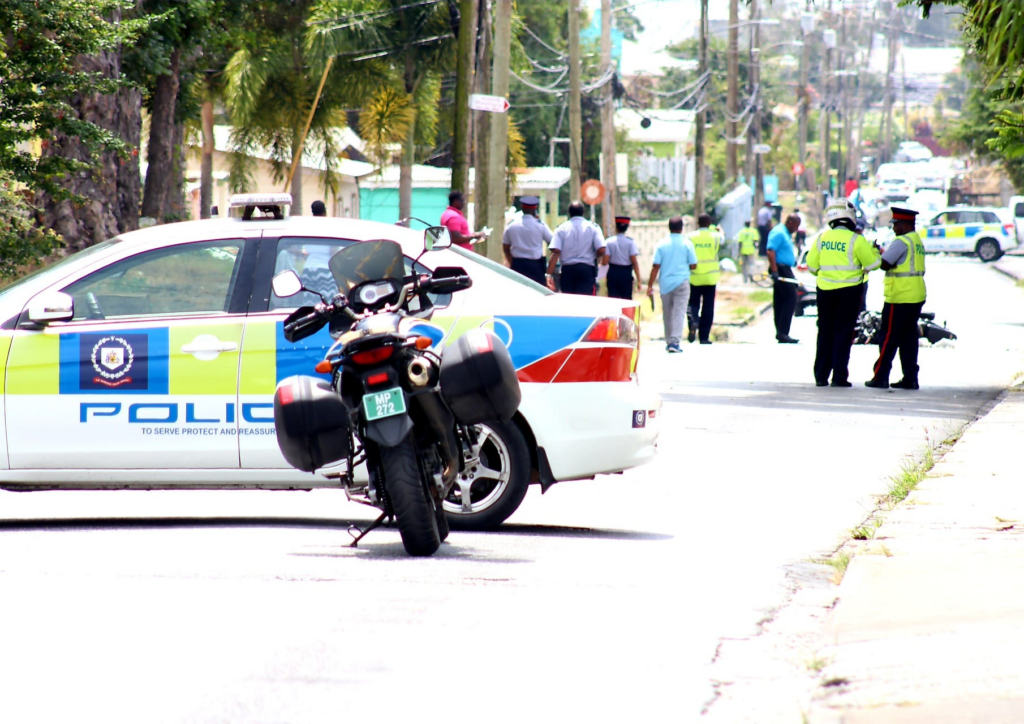Possible Solutions to Barbados' Crime Issues Amidst Gun Proliferation and Drug Trade

July 18, 2024
Barbados faces challenges with violent crime and illegal weapons influx through ports. Authorities seek solutions amid concerns over drug trade's impact on safety and security.
The idea must never go forth that Barbados’ current problems with violent crime and lawlessness cannot be remedied. Barbadians must not throw their hands into the air in despair or succumb to a defeatist attitude. Indeed, we believe that for every lawless citizen with evil intent in the island, there are hundreds bent on being productive citizens and contributing to the upliftment of themselves, their families and the country.
Many have offered solutions, some practical, some whimsical, a few spiritual, some based on police interventions, some social, some political, and on and on the debate has raged. No reasonable suggestion should be dismissed.
Neither ammunition nor guns are manufactured in Barbados. Yet, there seems to be a proliferation of small, medium and high-powered weapons on the island. They are being used constantly and the ammunition seems to be inexhaustible.
It has been determined by the hierarchy of the Barbados Police Service on multiple occasions, that these weapons are entering the island through our ports of entry. It, therefore, begs the question: What kind of investigations, surveillance, sting operations, and financial background checks, have been carried out to determine the possible identities of the people at these entry points who may be facilitating this illegality for personal gain?
We are not aware of any arrests emanating from within the airport and seaport, inclusive of ‘private’ entry points, to suggest that robust action has been taken to identify and apprehend persons who might be involved.
Authorities have attributed much of the violence and sporadic murders to the illegal drugs trade. Yet, other than the occasional interception of drugs at sea or on Barbadian soil, there is no evidence to suggest that the main players are facing any major threat to their illicit businesses.
The advantage of living in such a small country is familiarity with one’s neighbours. We know drug dealers, drug runners, we know their associates, their wealth accumulation, yet they seem to prosper unhindered and untouched by authorities.
They associate with law enforcement, social workers, politicians, lawyers, port workers, et al. In many instances, these individuals have built their nefarious enterprises from humble beginnings to a stage where they own apartments and top-end vehicles; they appear to launder money in stores, restaurants and other seemingly legitimate businesses. They also reportedly contribute to political campaigns.
There is no evidence that some of them pay taxes. One is left to wonder: How can such individuals operate in a dot of a country with such impunity and for such extended periods of time without apprehension? Where are the financial investigators? Where are the tax authorities? Where are the next-door neighbours and co-workers who fail to report to authorities any suspicious movement they witness in their villages, at their work sites, on the fishing boats, on the conveyor belts, in the containers at the ports of entry? Crime escalates when citizens become numb to its occurrence.
There is the suggestion that the politicisation of the Barbados Police Service has been a disincentive to robust policing. There is the belief that this has been to the detriment of the general public. Whether this is so or not, is debatable. What is not debatable is that the office of the Commissioner of Police must be seen by the rank and file, and the public, as the person at the helm of battling criminality on the streets.
Under the Police Act, the head of that institution is accountable to the head of state which is the President. The Commissioner of Police is responsible for operational matters within the country. It, therefore, provides curious optics when a head of government makes official public announcements about the formation of special units within the constabulary. That is not the domain of politicians.
The police must be allowed to do their job without intrusion. They must be allowed to explain to the public that all crime is organised but organised at varying levels. To trumpet the establishment of an organised crime unit in 2024 would lead the most disinterested citizen to query what the police force was doing prior to 2024. The organisation would be the first to indicate that it has always been investigating organised crime. The impression should never be conveyed to the criminal elements or law-abiding citizens that the Police Service is playing catch-up or operating in an environment that they are constantly being reactive.
Of course, social interventions are critical. The symbolic holding of moments of silence solves absolutely nothing. Greater employment opportunities must be found for school leavers. Those who do not show an inclination towards academics must not be abandoned.
Technical training and accompanying working opportunities must be found for these individuals. The Barbados Youth Advance Corps has provided a terrific opportunity for young people who might not have made the best use of their secondary school tenure. It ought to be expanded both in terms of recruitment and courses offered as a matter of national urgency.
Indeed, government should examine the possibility of compulsory national service for lawless youth or those convicted for crimes as an alternative to imprisonment. The church has an important role to play in the fight against criminal behaviour. But prayer alone will not suffice. The clergy will have to enter households, the trenches, the trouble spots and interact with families, especially the youth.


